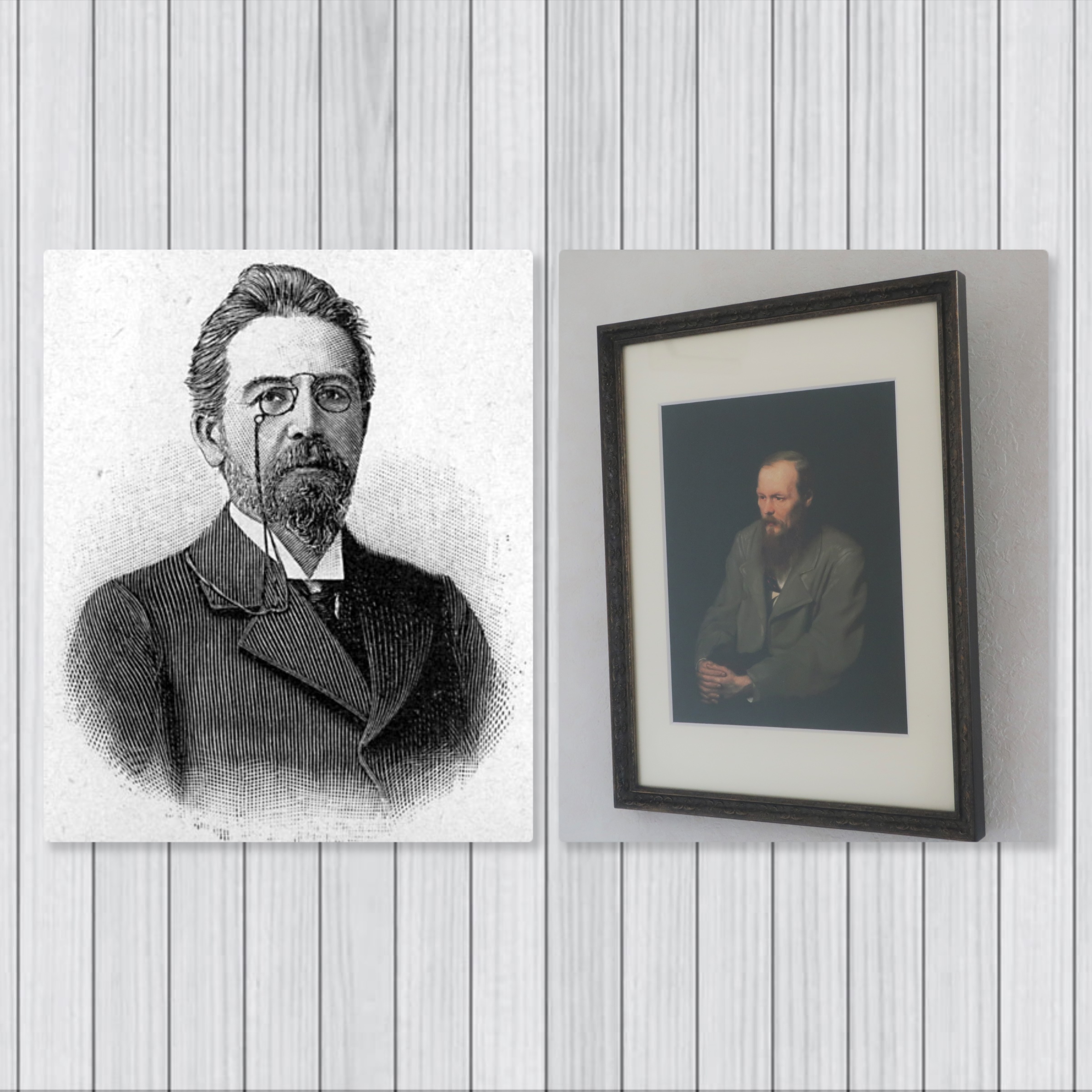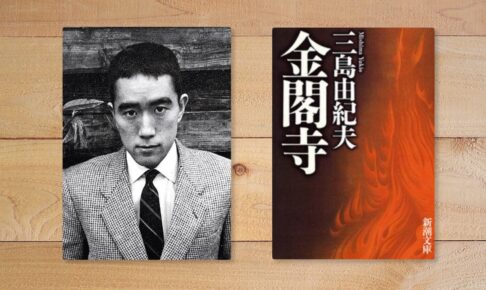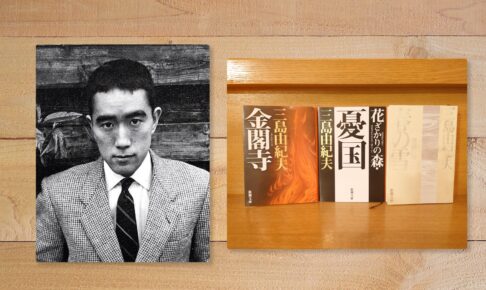Table of Contents
Why do we need Chekhov - Encounter with Chekhov
Up to the last article, we talked about the German pessimistic philosopher Schopenhauer.
We will now talk about the great Russian writer Chekhov.

Here is what Chekhov is like.
A world-renowned writer representing the late Imperial Russia. A master of short stories, he wrote four major plays: The Seagull, Uncle Vanya, The Three Sisters, and The Cherry Orchard. Born poor to a serf grandfather, he became a doctor and devoted himself to medical treatment and community activities in addition to writing. He also went to Sakhalin (Karafuto), where he was exiled.
Shodensha, Virgil Tanaz, translated by Kimiko Taniguchi and Tamayo Shimizu, Chekhov, back cover
Chekhov began his literary career in 1880. This was shortly before Dostoevsky's death.
His literary career took off in Russia just after the death of Dostoevsky and Turgenev.
Studying Chekhov is a great clue as to what happened to the Russian literary world after the death of Dostoevsky and Turgenev, and how their ideas were received after the death of these two men.
And the main reason I decided to read Chekhov was the influence of Russian literature scholar Seiro Sato, author of "The Watcher and the Seeker: Turgenev and Dostoevsky.
In the afterword to the book, Mr. Sato states
For me, literary research was ultimately a study of human beings. It was also a search for my own way of life.
Musashino Shobo, Seiro Sato, "The Viewer and the Seeker: Turgenev and Dostoevsky," p. 284
I was struck by this one word. In this book, I learned that Mr. Sato's thought was also influenced by Shinran and Dogen. I was fascinated by his attitude toward Russian literature.
I then picked up a book titled "My Heart's Chekhov" because I wanted to read more of Mr. Sato's writings. In the afterword of the book, Mr. Sato wrote
I read Chekhov, Gorky, Turgenev, Dostoevsky, Tolstoy, and Bunin, book after book, day after day. From Gorky, I drew courage and sincerity; from Turgenev, the pleasure that surged from his lush writing; from Dostoevsky, the endless struggle between trust and distrust; from Tolstoy, the awe of a sincerity that transcended its limits; from Bunin, the abundance of "sorrow" and poetic sentiment.
And now, again, I feel at ease with the "openness" of Chekhov. I have found in Chekhov a companion who fits my stature. Of the many books I have written, Chekhov's are still the most numerous. So, when I was in my mid-90s, with only a short distance to go before my death, I decided to summarize Chekhov's work. (I have written a few books on Chekhov, but his books are still the most numerous among his writings.)
Kitaro Nishida said in his later years.
The deepest philosophy arises from the deepest grasp of what our most mundane, everyday life is." (To Risaku Mudai, July 27, 1943)
Chekhov was a writer who approached the truth of mankind and the world by depicting "the most ordinary everyday life. His search for fairness, truth, freedom, and beauty (or should I say purity?) will never lose their goal as long as human beings continue to be human beings, no matter how the times change.
Chekhov has remained such a writer for me.
Eibunsha, Seiro Sato, My Heart's Chekhov, p216-217
Mr. Sato is a researcher who has focused on Chekhov. Mr. Sato said, "From Gorky I got courage and sincerity, from Turgenev I got a sense of pleasure that overflowed from his fresh writing, from Dostoevsky I got an endless struggle between trust and distrust, from Tolstoy I got awe at his sincerity beyond limits, and from Bunin I got plenty of 'sorrow' and poetic sentiment. ." He states.
For Sato, Chekhov is the pillar of his ideological research.
However, he also takes a sincere interest in the many writers associated with Chekhov, gains various impressions from them, and returns to Chekhov again. I was impressed by that.
What kind of a writer is Chekhov, whom Mr. Seiro Sato loves so much? His works must be incredibly interesting. I felt this way and decided to read Chekhov.
The Russian Literary World after Dostoevsky's Death: Remarkable Similarities with Japan
Dostoevsky ended his life at the end of January 1881 due to lung disease.
A few months later, Tsar Alexander II was assassinated, and Russia was engulfed in the terror of terrorism, followed by the repressive government of Alexander III, who ascended to the throne.
This also deprived them of their literary freedom, and they reverted to an era of strict censorship.
Young people who had thrown themselves into the anti-establishment movement with burning ideals were imprisoned one after another, and the "Vu Narod" (Into the People) movement, which was popular in the 1970s, has gone downhill.
Russia after the death of Dostoevsky may be described as a period of defeat for literature and thought due to severe repression. Mr. Sato states the following.
By the way, Russia at that time had many similarities with Japan today. First of all, just as anime and manga were flourishing in Japan, Russian comic novels were thriving. People were looking for "laughter.
There is a social background to this. The failure of the great enlightenment movement of idealistic and dedicated young people who went out into the countryside with the call of "Vu Narod" for social reform is somewhat similar to the celebration of democracy in postwar Japan and the storm of school conflicts in the 1970s and their dissolution and disappearance.
Eventually, the fever died down, idealism was dispelled, and "idealistic" things were considered "lame" and "naive. In place of the pure "ideals" came the "money-grubbers," who chased after greed and money. The same is true for the many young people who do not have a map of where they are going.
In Japan, "Horie Mon" was a hero for a time, but soon the bubble burst, the new "Golden Yasha" disappeared from history, and soon the wave of the great recession caused by the "financial collapse" at the end of the money game came in from across the sea. Do people not recognize "madness" in this sequence of events?
Russia after the failure of "people'sism" and Japan today are somewhat similar. History repeats itself in different forms.
In the case of Japan, people who had lost the purpose of their lives sought to find solace in sports, gourmet food, and laughter as a means of coping with their "melancholy," but in Russia at that time, either the indulgence in reading comical novels or, conversely, Schopenhauer's pessimistic philosophy that "depression" was the true nature of life, became popular to drown out "melancholy. Schopenhauer's philosophy of pessimism, which taught that depression was the true nature of life, became popular in Russia at that time.
In those days, as Chekhov said, "I wrote everything but poems and informers," poverty was the rule in Russia, and "beggars" could be seen everywhere, especially in front of Russian Orthodox temples. Russia has long been known for its high suicide rate, similar to Japan, where over 30,000 people have committed suicide and the number of "shut-in" students has reached 30,000. Are there any similarities between the circumstances that made Russians jump to laughter at that time and the prevalent trend of manga, anime, and empty comic strips in Japan?
Ibunsha, Seiro Sato, "My Heart's Chekhov," p24-26
Idealism has been dispelled and "idealism" is now considered "lame" and "naive. In place of pure "ideals" came the "money-grubbers," who were solely after greed and money. The same is true of the rash of young people who have no map of where they are going."
I was particularly struck by this part. I feel as if the feeling that had been nagging at me was right there in my mind.
He said, "Nowadays in Russia, Dostoevsky and Tolstoy are not read that much. In fact, Dostoevsky is not that well liked." I had seen such an article on the Internet.
Dostoevsky and Tolstoy were writers who continued to ask the question, "What is life? But he said, "No one reads such things, nor do they need to. It is lame and naive to think that way. You should look at reality." I felt that such articles were written because they were seen as such.
Also,
In the case of Japan, people who had lost the purpose of their lives sought to find solace in sports, gourmet food, and laughter as a means of coping with their "melancholy," while in Russia at that time, either indulgence in comical novels or Schopenhauer's pessimistic philosophy that "depression" was the true nature of life was popular to distract people from their "melancholy. Schopenhauer's philosophy of pessimism, which taught that depression was the true nature of life, became popular in Russia at the time.
I see the connection with Schopenhauer mentioned in the previous article in the section "The Tolstoys". When Dostoevsky was alive, his existence and that of Tolstoy were still powerful as the antithesis of such a trend. However, after his death, the Czar of Russia was assassinated, and after that, the country went straight to the politics of repression. The trend against Schopenhauer was lost.
These trends completely changed Russian literature after Dostoevsky's death.
The common thread that runs through the characters' personalities is that they are all about bread, money, and entertainment, and not about "achievement," "sacrifice," deep "ideology," "enlightenment," "philosophy," or "exploration," as in the masterpieces that dominated the world in the past.
Ibunsha, Seiro Sato, "My Heart's Chekhov," p27-28.
Thus the great Russian literary tradition created by Dostoevsky, Tolstoy, and others was broken here.
Chekhov, whom you are about to read, was born in 1860. In other words, he spent his youth at the height of Russian literature, and by the time he came of age and made his debut as a writer, he was in a time when the changes of the times were clearly visible.
However, unlike many writers in the world who pandered to the times, Chekhov went his own way. Of course, he was influenced by the times and started out with comic novels. From there until his last days, he produced many masterpieces and became a great writer, loved in Russia along with Dostoevsky and Tolstoy.
By studying Chekhov, we can see the historical background of the time and how Dostoevsky and Tolstoy were perceived by the Russians. This is also significant for studying Dostoevsky.
Above all, Chekhov himself is by far the most fascinating writer. This is what it all boils down to.
I am reading Chekhov's work right now and I am shocked. Every time I read Chekhov's works, I am struck by the thought that this man is a monster. This feeling reminds me of the first time I read Emile Zola, the great French writer. Or perhaps I could say it is even more shocking than that.
And interestingly, Zola and Chekhov have some interesting similarities. I would like to talk about this again sometime in the future.
Future Articles
Now, I would like to finally start Chekhov's works from the next article, but I will start a Buddhist column for a while from the next article.
Schopenhauer was a thinker who was strongly influenced by Buddhism. The Buddhism that he was influenced by was the most ancient Buddhism, known as primitive Buddhism.
The "Buddha's Words," which I have mentioned in my blog before, is a good example of this.
."Walk alone like a rhinoceros hornThis is also where the famous phrase "the
The next sutra from this article is called "Dhammapada," which is said to be one of the oldest sutras as well.
This sutra can be read in the Nakamura Gen translation under the name "Buddha's Words of Truth.
Since I have read Schopenhauer, I think it would be a good opportunity to learn about Buddhist teachings again here.
So before we get into Chekhov, I would like to read "Buddha's Words of Truth" starting with the following article.
The above is "Chekhov, a Writer Representing the Late Imperial Russia - For Understanding Russia after the Death of Dostoevsky.
Next Article.
Click here to read the previous article.
Click here for a list of Chekhov's recommended works.
Related Articles







































